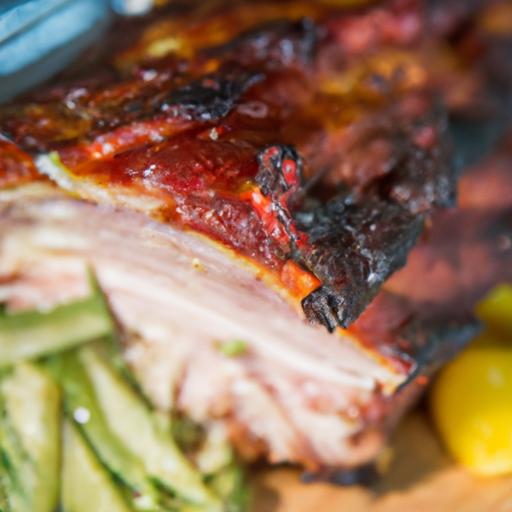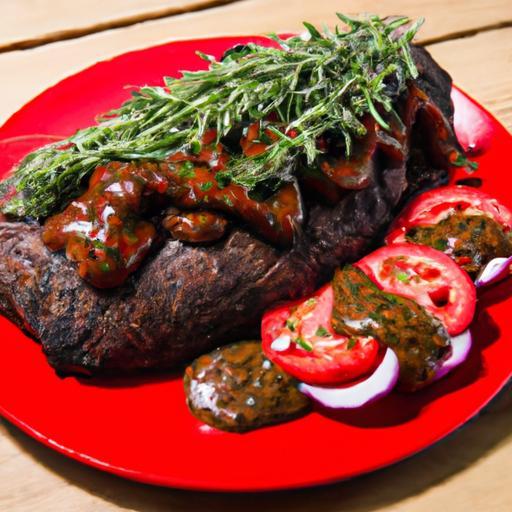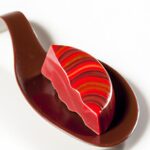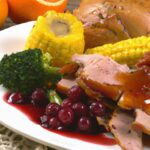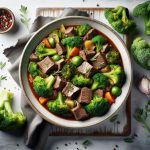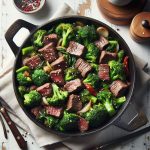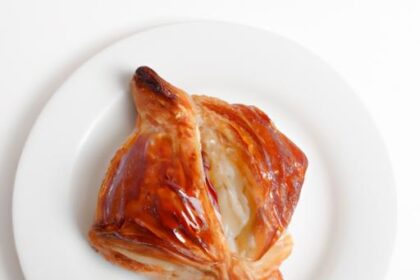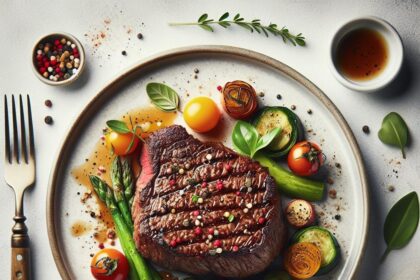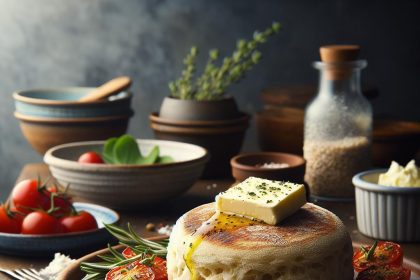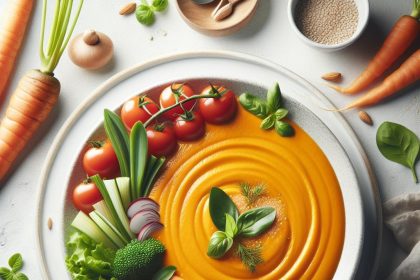There’s an art to barbecue-a symphony of flame, smoke, and sizzle that awakens the senses and brings people together. But behind every mouthwatering bite lies a fascinating science, a precise dance of chemistry and physics that, when understood, can transform anyone from a casual griller into a true Grill Genius. In this article, we’ll unlock the secrets behind the perfect BBQ, exploring how temperature control, marinade magic, and even the molecular makeup of meat play starring roles. Get ready to fire up your curiosity and elevate your grilling game beyond intuition to mastery, one delicious discovery at a time.
Grill Genius begins with mastering the fundamental science that elevates barbecue from casual cookout to culinary masterpiece. When you understand how heat zones influence grilling control, the chemistry of marinades transforms your meat into tender perfection, and the choice of wood and charcoal enhances every bite with layered smoky flavors, you unlock a whole new realm of juiciness and flavor depth. Precision timing and temperature control are the final keys that bring harmony to your grill, promising consistently succulent results that will impress every palate.
Prep and Cook Time
- Preparation: 30 minutes (including marinade time)
- Cooking: 20-40 minutes, depending on cut and thickness
- Total: 50-70 minutes
Yield
Serves 4-6 hungry guests
Difficulty Level
Medium – Ideal for grill enthusiasts ready to elevate their BBQ skills
Ingredients
- 2 pounds boneless beef ribeye or chicken thighs (bone-in for added flavor)
- 1/4 cup extra virgin olive oil
- 1/4 cup soy sauce (for umami depth)
- 3 tablespoons fresh lemon juice
- 2 tablespoons honey or maple syrup (natural tenderizer and caramelization aid)
- 4 cloves garlic, minced
- 1 tablespoon smoked paprika (adds smoky warmth)
- 1 teaspoon ground black pepper
- 2 teaspoons kosher salt
- Fresh herbs: 2 sprigs rosemary & 3 sprigs thyme
- Wood chunks: apple or hickory for grilling (see notes)
- Charcoal: lump charcoal for clean, intense heat
Instructions
- Prepare your marinade: In a bowl, whisk together olive oil, soy sauce, lemon juice, honey, garlic, smoked paprika, black pepper, and kosher salt until well combined. This blend encourages enzymatic breakdown of muscle fibers, creating tenderness while infusing complex flavors.
- Marinate the meat: Submerge your beef or chicken in the marinade, cover, and refrigerate for at least 20 minutes or up to 2 hours for deeper flavor penetration. Avoid over-marinating to prevent mushy texture.
- Set up your grill: Arrange lump charcoal on one side of the grill for direct high heat (around 450-500°F) and leave the opposite side empty for indirect lower heat zones (300-350°F). Add pre-soaked apple or hickory wood chunks atop the charcoal for aromatic smoke.
- Preheat the grill: Allow the charcoal to ash over (white-gray coating), signaling optimal temperature for searing.
- Sear the meat: Place the marinated meat directly over the hottest zone. Sear for 3-4 minutes per side to develop a caramelized crust. Resist flipping too often to build that coveted Maillard reaction.
- Move to indirect heat: Transfer meat to the cooler zone to finish cooking gently. Use a meat thermometer; target 130°F for medium-rare beef, 165°F for chicken, ensuring juiciness and food safety.
- Rest the grill stars: Remove meat from grill and tent with foil for 5-10 minutes before slicing. Resting redistributes natural juices, preventing dryness.
- Serve and garnish: Slice against the grain, sprinkle with fresh rosemary and thyme leaves, and drizzle any resting juices over the top.
Tips for Success
- Marinade chemistry: Acidic ingredients like lemon juice break down proteins while oils enhance flavor absorption. Balance acids and oils to ensure your meat stays tender, not tough.
- Heat zones mastery: Creating direct and indirect zones allows you to control cooking speed, preventing flare-ups and overcooked exteriors.
- Wood and charcoal selection: Fruitwoods like apple impart subtle sweetness, perfect for chicken or pork, while hickory delivers intense, robust smoke flavors ideal for beef.
- Thermometer use: Invest in a digital instant-read thermometer to guarantee perfect internal temperatures every time.
- Make ahead: Marinade can be prepared a day in advance; allow meat to reach room temperature before grilling for even cooking.
Serving Suggestions
Serve your perfectly grilled masterpiece with vibrant grilled vegetables like bell peppers and zucchini, or a fresh summer salad tossed with citrus vinaigrette. A side of creamy garlic mashed potatoes complements the smoky richness beautifully. Garnish with fresh herbs and a light sprinkle of coarse sea salt for an elevated presentation.

| Nutrient | Per Serving |
|---|---|
| Calories | 450 kcal |
| Protein | 38 g |
| Carbohydrates | 8 g |
| Fat | 28 g |
For further mastery on meat preparation techniques, check our Ultimate Grilling Techniques. For scientific insights, refer to ScienceDirect’s food chemistry research on marinade effects.
Q&A
Q&A: Grill Genius – Unlocking the Science Behind Perfect BBQ
Q1: What does it mean to be a “Grill Genius”?
A1: Being a Grill Genius means marrying culinary art with the science of heat, smoke, and flavor. It’s understanding how chemistry and physics transform simple ingredients over a grill into mouthwatering masterpieces. It’s less guessing, more knowing.
Q2: How does heat actually cook your BBQ?
A2: Heat energizes molecules, causing meat proteins to denature and reorganize, which changes texture and flavor. On a grill, radiant heat and convection create the perfect environment for Maillard reactions – that glorious browning process that gives BBQ its signature savory crust.
Q3: Why is temperature control so crucial when grilling?
A3: Think of temperature as the grill’s language. Too high, and you burn the outside while leaving the inside raw; too low, and you end up with tough, dry meat. Precise temperature control ensures even cooking and optimizes tenderness and juiciness by balancing protein coagulation and moisture retention.
Q4: What role does smoke play in the BBQ flavor profile?
A4: Smoke is flavor’s invisible artist. When wood burns slowly, it releases compounds like phenols and guaiacol that infuse meat with complex, aromatic notes-from sweet and fruity to robust and smoky-turning simple grilled food into a symphony of taste.
Q5: Why is marinating more than just soaking meat in spices?
A5: Marinating is a chemical dialogue between acids, enzymes, and salt with meat fibers. Acids tenderize by breaking down proteins, while salt helps retain moisture through osmosis. It’s a science-backed technique that primes your meat for maximum flavor absorption and juicy results.
Q6: How can understanding the type of grill improve my BBQ game?
A6: Different grills-charcoal, gas, pellet, or electric-deliver heat and smoke differently. Charcoal offers intense, uneven heat and authentic smoky flavor; gas provides consistent temperature control; pellet grills automate smoke and heat precision. Knowing your grill’s quirks lets you harness its strengths for perfect BBQ every time.
Q7: What’s the secret behind that perfect char without drying out the meat?
A7: The secret lies in controlling cooking phases-starting hot for a quick sear to lock in juices, then moving to indirect heat to finish the interior slowly. This method creates a crispy, flavorful crust without turning your meat into a leathery husk.
Q8: Can science explain why rest time after grilling matters?
A8: Absolutely. Resting lets the meat’s juices redistribute evenly as muscle fibers relax post-cooking. Cut too soon, and the flavorful liquids gush out; properly rested BBQ stays moist and tender, enhancing every bite.
Q9: How do seasonings behave differently on a grill compared to stovetop cooking?
A9: Grilling encourages reactions between seasonings and high heat-think caramelization of sugars and charring of spices-that amplify flavors in unique ways. Plus, smoke mingling with spices creates layers of complexity not achievable with stovetop methods.
Q10: Any final tip to take my BBQ from great to genius?
A10: Embrace experimentation guided by science. Keep a grill journal, note temperatures, wood types, marinade times. Learn how your unique variables interact. The grill is your lab, flavor your formula-combine them wisely, and you’ll unlock BBQ perfection every time.
Final Thoughts
As the embers fade and the last sizzle echoes into the evening, remember that mastering the art of BBQ is more than just grilling-it’s a delicious dance of science and intuition. With “Grill Genius,” you’ve unlocked the secrets behind perfect heat, flavor fusion, and smoke seduction. So next time you fire up the coals, you won’t just be cooking; you’ll be crafting a masterpiece, one precisely measured moment at a time. Here’s to turning every backyard cookout into a laboratory of taste, where every bite reveals the magic that happens when passion meets precision. Keep experimenting, keep savoring, and above all-keep grilling genius alive.